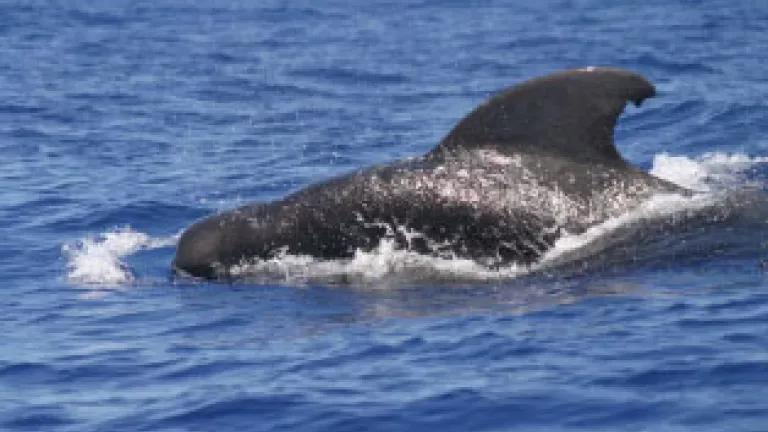This Week in Whales: Pilot Whale Stranding in Florida Everglades; Mass Dolphin Die-Off on East Coast Continues; New Zealand Shafts Maui's Dolphins; Obama Administration Does Something Good...

- Eleven short-finned pilot whales have died after stranding in the shallow waters of the Florida Everglades—necropsies showed that they were emaciated and suffering from malnutrition. Pilot whale pods are notoriously tight-knit—often if one whale gets stranded, the other whales will stay behind and risk stranding as well. Last week, officials were hopeful that the remainder of the pod had moved further out to sea, but a sighting this week confirms that they are still swimming in dangerously shallow waters.
- The ongoing mass dolphin die-off on the east coast (from July 1 to December 1,936 bottlenose dolphins died from New York to Florida—113 is considered "normal" for that area and time range) has recently spread to Florida, South Carolina, and Georgia as the dolphins migrate south for the winter. Many dolphins had contracted morbillivirus, although researchers are questioning whether human actions that degrade coastal ecosystems and mess with the ocean's temperature and pH may be complicit in the unusual mortality event as well. And now there are signs that the virus has spread to other species; last month, four stranded humpback whales and two pygmy whales tested positive for the dolphin morbillivirus. Each of these developments is disturbing, and we will keep you posted on the spread of the mass dolphin—and whale?—die off.
- The first comprehensive study of humpback whales in the North Pacific reveals five sub-populations, each with a distinct geographic distribution and genetic make-up. Hopefully, these findings will help focus conservation efforts—for instance, the International Union for the Conservation of Nature downlisted the humpback whale's status in 2008, but the new evidence that a number of genetically distinct sub-populations inhabit the North Pacific may evince the need for more stringent conservation efforts.
- The New Zealand government has recently instituted a set-net ban along parts of its coastline in order to protect the extremely rare Maui's dolphin. But don’t breathe a sigh of relief just yet. The measures are inadequate, leaving the Maui’s dolphin doomed to extinction.
- The Obama Administration recently decided to uphold the Ship Strike Rule, which mandates speed restrictions of no more than 10 knots for vessels 65 feet or greater in certain areas and times of year in order to protect endangered right whales from the risk of collision with larger vessels. Thank you Obama Administration (wish I could say that more…).
Meanwhile, this week in Wales....
A great oak in Chirk, Wales, is in the running to be named the European Tree of the Year. The tree is over a thousand years old, and sits at the site of The Battle of Crogen which took place 800 years ago when outnumbered Welsh fought off invading English. Good luck to the Oak at the Gate of the Dead!
This blog was written with NRDC’s Marine Mammal Protection Project’s assistant, Lauren Packard. Thanks Lauren!
Photo Credit: Short-Finned Pilot Whale, by © Alice MacKay, Courtesy Cascadia Research for NOAA

